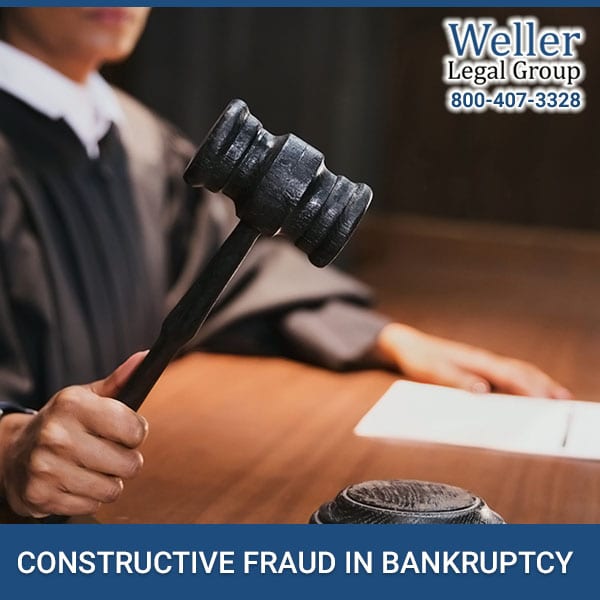 There are two forms of fraud in regards to bankruptcy, intentional fraud and constructive fraud. It is important for you to understand these two forms of fraud so you are able to protect yourself in the future from making any of these mistakes that could potentially land you behind bars. In this article we are going to discuss constructive fraud and inform you on what you can do so you don’t make any of mistakes that could potentially leave you in hot water.
There are two forms of fraud in regards to bankruptcy, intentional fraud and constructive fraud. It is important for you to understand these two forms of fraud so you are able to protect yourself in the future from making any of these mistakes that could potentially land you behind bars. In this article we are going to discuss constructive fraud and inform you on what you can do so you don’t make any of mistakes that could potentially leave you in hot water.
Constructive Fraud
What is the definition of constructive fraud you might ask? This type of fraud is when a person or entity gains an unfair advantage over another party by using deceitful or unfair methods. The thing that makes constructive fraud kind of ambiguous is that intent does not need to be shown. In the case of intentional fraud intent will have to be shown. This can make it confusing for a lot of people and it can be frustrating to not know for sure if you are committing constructive fraud or not.
Examples
- Remaining silent when you have a duty to speak
- Making factual errors even if the party wasn’t aware of these errors
- Gaining of an unfair advantage by the party at the expense of the opposing party
Consequences
- Party can be issued a fine if found guilty of constructive fraud
- Party could possibly be imprisoned if found guilty of constructive fraud
- Party could possibly be ordered to make repayments based on losses incurred by the opposing party
Avoiding Constructive Fraud
Constructive fraud is a type of fraud that you really have to be careful of. Many people who are committing constructive fraud are not even aware that they are committing fraud. It is very important that you get your facts correct before you are going to file for a bankruptcy. If you made $127,361 from your business last year it is important that you disclose the entire factual amount, not that you made about $100,000. Some of the best ways to avoid committing constructive fraud is being accurate with your financial information and not trying to get any type of unfair advantage over your opposing party. The main reason to file for bankruptcy is to make your life better after the bankruptcy process so it is important to be honest throughout the bankruptcy process. Make sure to discuss with your attorney for more ways you can protect yourself from accidentally committing constructive fraud.
Final Thoughts
We at The Weller Legal group hope that the information provided to you in this article helped to educate you on the topic of constructive fraud in bankruptcy and on some of the steps you can take to help better protect yourself from accidentally committing constructive fraud. We at The Weller Legal Group have over 20 years of experience in helping our clients with their bankruptcies and improving their credit scores. We have offices located all throughout Florida, including, Clearwater, Port Richey, and Lakeland. If you have any additional questions in regards to filing for a bankruptcy or working on improving your credit score in the near future feel free to give us a call today at 1-800-407-3328.
Picture Credit: Shopify Partners

